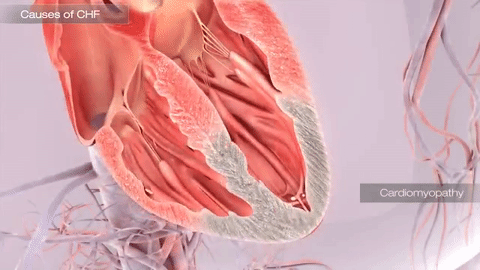- In the United States, 1 in 4 women dies from heart disease.
- Cardiovascular diseases kill nearly 50,000 African-American women annually.
- Of African-American women ages 20 and older, 49% have heart diseases.
- Only 52% of African-American women are aware of the signs and symptoms of a heart attack.
- Although older women are more susceptible to acquire heart disease, women of all ages should take steps to prevent it by practicing healthy lifestyle habits.
- What puts women at a greater risk of heart disease is the fact that there are several misconceptions about it.
- Apart from high cholesterol, high blood pressure and obesity that are the traditional risk factors for coronary artery disease, other factors may play a bigger role in the development of heart disease in women. For instance, women with diabetes are at greater risk of heart disease than men, mental stress and depression affects women’s hearts more than that of men, smoking in women is a greater risk factor for heart disease than it is in men. It has also been found that there is a comparative lack of physical activity in women that contributes to their poor heart health.
- Menopause, accounting for low levels of estrogen, also poses a significant risk factor for developing coronary microvascular disease. Broken heart syndrome, a condition often brought on by stressful situations that cause severe, but usually temporary, heart muscle failure, occurs more commonly in women after menopause.
- Women with inflammatory diseases, such as rheumatoid arthritis or lupus, may also have a higher risk of heart disease. Research is ongoing to discover other risk factors for heart disease in women.
Latest News
A U.S. based study revealed that women who start the menopause early have a greater risk of heart disease or heart failure, researchers have found. The observation was basically that women with a shorter reproductive duration or who have never given birth are at more than twice the risk of a common type of the condition, known as diastolic heart failure, compared with women who have children. The average age of menopause was 47 years and the women were followed up for an average of just over 13 years. For every year later that a woman experienced menopause, the team found she had a 1% decrease in the risk of heart failure.
If she can, you can too!

In 2004, Toni Braxton was diagnosed with pericarditis, i.e., inflammation of the tissue surrounding the heart. 4 years later, in 2008, when she experienced pain while exercising, she was told she had microvascular angina.
Being in her 30s, Braxton never thought a heart ailment could strike someone so young.
“When it comes to health, the biggest mistake women make is never putting themselves first. If it happened to me, it can happen to you. You can be in your 30s, less than 115 pounds, do regular exercise, and have heart disease. But we can prevent it, we can fix it! ”, she said.Image Source: Wikipedia.
Untreated pericarditis can lead to potentially life-threatening complications, so early detection and treatment are imperative. Microvascular angina or cardiac syndrome X is marked by heart pain when there is a lack of blood supply to a portion of the heart muscle. Some feel it as a pressure or a burning. Some people don't feel it at all. People with diabetes are notorious for not feeling angina. This is called silent ischemia.
The value of people learning about microvascular angina from Toni Braxton is that middle-age women simply refuse to believe they have heart disease. They feel pain with exercise, and don't do anything about it. Toni Braxton, after her bout with pericarditis and healing her own heart, she's helping other women prevent the breakage in the first place. For Braxton, it's now all about harmony.
#HerHealthMatters

Dear Ladies, Keep An Eye On These 7 Health Risks
Women have sure come a long way but they are still at a disadvantage in many spheres of life, including health. They may have a longer life expectancy than men in most countries, but that doesn't necessarily imply that they get to enjoy healthier lives.Read More..

Women Health Issues: Depression Important Facts
That depression is synonymous to sadness is a common thought. But feeling sad is only a part of it. A depressed person is more likely to experience physical symptoms such as headaches, cramps, or digestive problems. They may also have trouble with sleeping and feel tired throughout the day.Read More..









